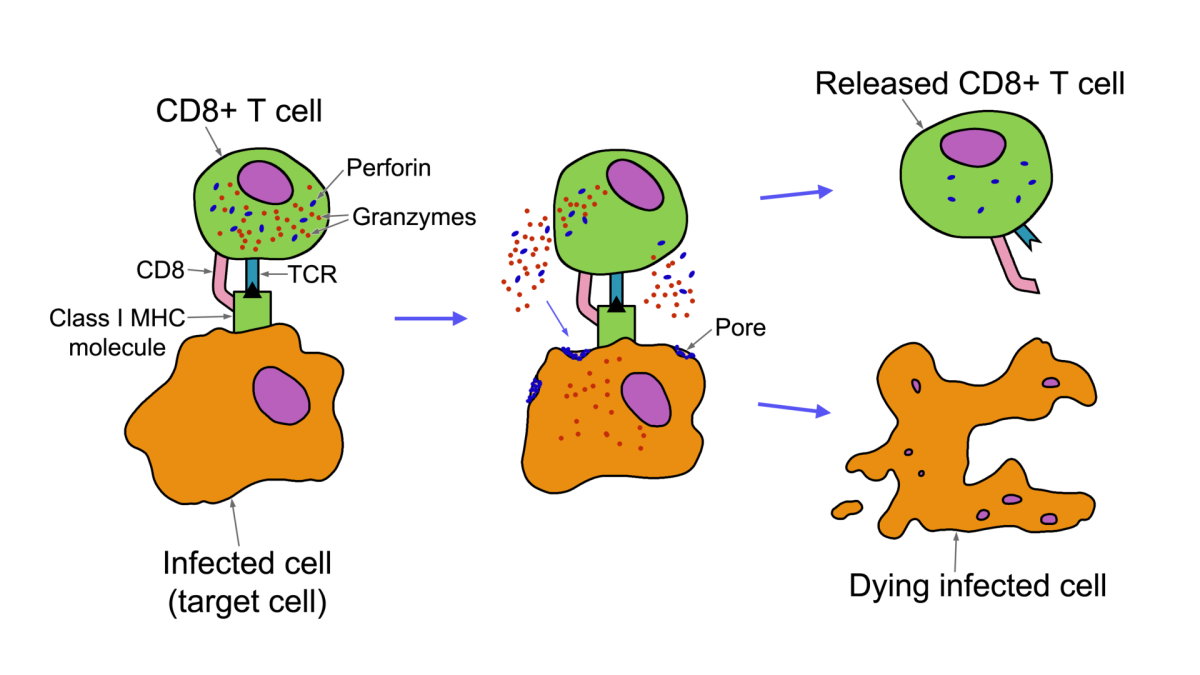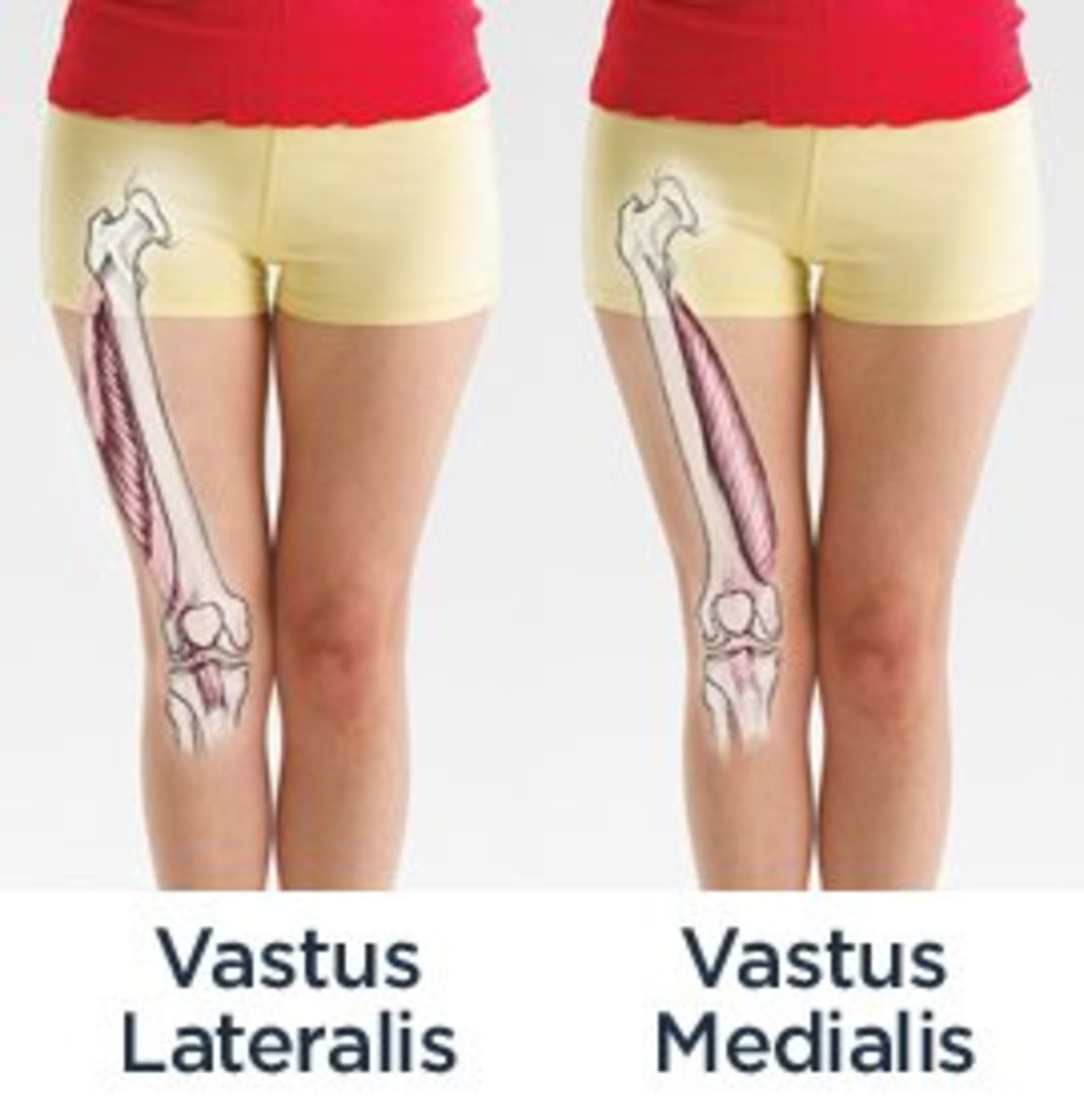Regular Exercise and Immunity

The immune system is a defense system, which comprises of many biological structures and processes within an organism that protect against disease. Basically, there are two major sub-systems of the immune system: the innate immune system and the adaptive immune system.
Innate immune system refers to non-specific defense mechanisms that come into play immediately or within hours of an antigen's appearance in the body. An antigen is a toxin or other foreign substance, which induces an immune response in the body. These mechanisms include physical barriers such as skin, chemicals in the blood, and immune system cells that attack foreign cells in the body. The innate immune response is activated by chemical properties of the antigen.
Adaptive immune system refers to antigen-specific immune response mechanism. First of all, the antigen first must be recognized. Once it has been recognized, the adaptive immune system creates an army of immune cells specifically designed to attack that antigen. Adaptive immunity also includes a "memory" that makes future responses against a specific antigen more efficient.
Regular exercise and immunity -
During the last century, the people have become less physically active. This has led to remarkable increases in the incidence of chronic diseases such as cardiovascular diseases, type-2 diabetes, obesity, musculoskeletal disorders, pulmonary diseases, certain types of cancer and neurological disorders. Regardless of the health status, sedentary habit has also been affecting both the quality and life expectancy of these populations.
The studies show that if you exercise as you get older, your muscles will stay strong and intact longer. In addition, your blood pressure may avoid the uptick often associated with aging. But even more, your immune system receives a serious boost from regular exercise, enhancing your ability to fight infection and disease at an older age.
Benefits of regular exercise on immunity -
Regular exercise has the following benefits on our immune system –
- Physical activity may help flush bacteria out of the lungs and airways. This may reduce chance of getting a cold, flu, or other related illnesses.
- Daily brisk walking compared with inactivity reduces the number of sickness days by half over a 12 to 15 week period without change in resting immune function.
- The evidence suggests a link between the intensity of exercise and infectious and neoplastic disease. A neoplasm is a type of abnormal and excessive growth of the tissue, called neoplasia. One likely way by which exercise exerts its effect on cancer and infection is by altering the function of the immune system.
- Regular moderate exercise reduces the risk of infection compared with a sedentary lifestyle. Conversely, very prolonged bouts of exercise and periods of intensified training or competition are associated with increased risk of infection.
- Exercise slows down the release of stress hormones, which are likely to decrease immunity. Therefore, stress increases the chances of illness. Whereas lower stress hormones may protect against illness.
- The acknowledgment of the benefits conferred by the regular practice of exercise has led to its implementation as a complementary therapy against metabolic diseases and even for the treatment of cancer.
Physiological changes in immune system due to regular exercise –
- Exercise causes change in antibodies and white blood cells (WBC). WBCs are the body's immune system cells that fight disease. These antibodies or WBCs circulate more rapidly, so they could detect illnesses earlier than they might have before. However, no one knows whether these changes help prevent infections.
- The cells of the innate immune system i.e., macrophage, natural killer cell, and polymorphonuclear neutrophils are first-line defenders against cancer and infectious disease. The effects of exercise on the number, functions, and characteristics of cells of the innate immune system are complex. The mechanisms as to how exercise alters innate immune function are not well understood.
- It has been found in a study that a regular moderate aerobic exercise has effects on different immune cell sub-sets and their function. It also affects the cannabinoid system with potentially beneficial implications on the immune system. The cannabinoid system, consisting of endocannabinoids and their receptors, is one of the most important physiologic systems involved in establishing and maintaining human health. Altogether, the results contribute to the understanding of the benefits of exercise on the practitioner´s general health.
- Consistently, the studies have shown that regular exercise alters the function of T-cells, affecting their production of pro- and anti-inflammatory cytokines. Likewise, trained rats presented increased glucose consumption. Furthermore, those changes obtained in trained animals seem to last days after the last exercise bout.
Exercise recommendation for adults -
Moderate exercise is significantly better than no exercise at all, but there’s a point where that benefit stops and over-training sets in. The standard recommendation of exercise for an adult is as below:
For general health, adults should aim for 150 to 300 minutes of moderate physical activity or 75 to 150 minutes of vigorous-intensity aerobic physical activity each week. When repeated regularly, aerobic activity improves cardio-respiratory fitness. Running, brisk walking, swimming, and cycling are all forms of aerobic activity.
Additionally, it is recommended to do balance and stretching exercises to enhance flexibility as well as muscle-strengthening workouts two or more times a week. Older adults should focus more on strength and balance exercises, which have been shown to improve balance, help in day-to-day activities and decrease fracture risk in older adults.
Chronic training for and competing in extreme events such as marathons, ultra-marathons, Ironman distance triathlons and very long distance bicycle races may cause short-term negative effects. Although long-term excessive endurance exercise may cause adverse health issues, further investigation is needed to determine if an upper cutoff for the health benefits of exercise exists.
A physical exercise, incorporating the following, is very likely to produce the immune-suppressant response:
- Relatively long workouts (1.5 hours or more) at a stretch, especially without refueling during the workout.
- Prolonged periods of reasonably high intensity, but not excessively difficult physical activity.
- An inadequate recovery period between workouts.
The bottom line –
During the last century, people have become less and less physically active. This has led to remarkable increases in the incidence of acute and chronic diseases. It has been found across the board that, apart from improving the overall fitness, regular moderate exercise helps boost the immune system - the body's defense against infections.
Reference -
- Nieman, D.C., Pedersen, B.K. Exercise and Immune Function. Sports Med 27, 73–80 (1999). https://doi.org/10.2165/00007256-199927020-00001
- Med Sci Sports Exerc. 1999 Jan;31(1):57-66. Exercise and cellular innate immune function. W oods JA1, Davis JM, Smith JA, Nieman DC.
- Chronic exercise modulates the cellular immunity and its cannabinoid receptors expression Published: November 18, 2019 https://doi.org/10.1371/journal.pone.0220542








